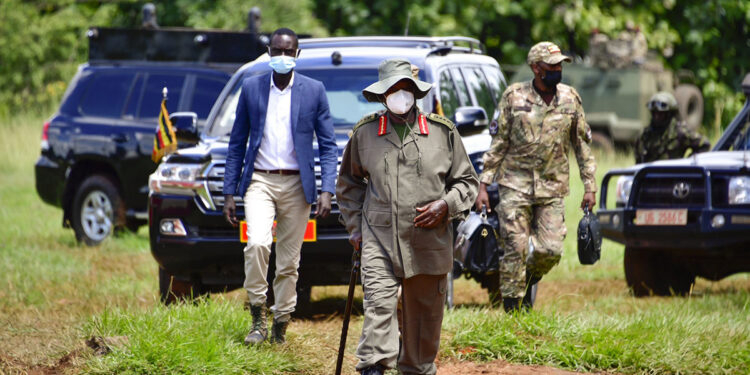The burning issue of Balaalo invasion of Obongi District, the West Nile sub-region, and wider Northern Uganda should not be trivialised.
In Obongi, the target of the Balaalo is to acquire and own the land of the Obongi people forever. The Balaalo issue, therefore, becomes one of settler colonialism. It is breeding problems of not only land grabbing but also economic domination, and political repression.
Settler colonialism occurs when a new group of people, in this case the Balaalo, arrives to settle in an already inhabited territory so as to grab the land of the natives for themselves, permanently inhabit it and found a new society of settlers on the land.
Such migration and settlement process involves not only land grabbing but also the displacement or repression and even elimination of the natives whom the migrants got in their targeted areas and a destruction of the society, culture and language of the native people of the area.
One key characteristic of settler colonialism is that it is usually organised or supported by State power. This means strategic planning and State resources are directed towards aiding the migrants in the process of removing the indignant communities from their land; and this may be carried out by a variety of ways, ranging from political, economic, judicial and military means.
The police, local and central administrations, and the courts of law will be tilted to aid the migrant community; and in some extreme cases, the support given to the migrant community may include the forceful displacement and removal of the previous inhabitants of the area. Then, finally as their land is taken, there will be an assimilation of the weakened remnants of the indigenous population into the culture of the new arrivals. Finished!
Case of Kenya, South Africa
Disastrous cases of settler colonialism clashing with natives have been witnessed in former European colonies near us in the Kenya Highlands and in the Rift Valley in Kenya and in South Africa, and also farther afield in North America, and Australia. Between disease, war, starvation, and conscious policies of kidnapping and re-education of native children, the Australian region’s indigenous population dropped from well over a million in 1788 to just a few thousand by the early 20th century.
However, settler colonialism is also practiced by non-Europeans. For instance, the Boers or Afrikaners are a Southern African ethnic group that descended from predominantly European or Dutch settlers, who first arrived in South Africa and settled at the Cape of Good Hope in 1652. But later claimed superiority and dominated South Africa’s economy and politics until 1994 when a Blackman, Nelson Mandela, became the president of South Africa and the minority rule of the Whites was brought to an end.
Balaalo Invasion
With the above background, the Balaalo invasion of Northern Uganda should be seen as one of the well-known cases of mass migration and settler colonialism in other parts of the world. The Balaalo are also aided by state power – especially by their powerful kinsmen, including MPs, ministers, and army Generals, in the current government of Uganda.
Whereas the Balaalo migration to Northern Uganda started earlier, today it is assuming a new dimension and is getting worse. The directives by President Museveni are actually created to help the Balaalo to settle in Northern Uganda rather than to order them to move away. The directive emphasises “fencing of land by the Balaalo” instead of directing the Balaalo to go back to their areas of origin. As it stands, the directive will have the net effect of helping the Balaalo settle permanently in Northern Uganda.

Currently, the Balaalo cattle are destroying our gardens, food and cash crops with both arrogance and impunity and cannot co-exist with the native communities of Northern Uganda. So, to prevent future settler colonialism, the Balaalo and their cattle should not be allowed to settle in Northern Uganda. All other people of Uganda who have come to do business or to live in Northern Uganda should have no worrie – they will not be affected; our anxiety is only with the Balalo settler colonialism.
Way Forward
The management of this Balaalo problem requires a collective response from the people at the community level in Northern Uganda and no one should trust the government of Uganda as it is constituted today. We should be able to identify our political leaders and other government officials serving the interests of the Balaalo in Obongi, West Nile, Northern Uganda at large; do not trust them.
We need concerted efforts and a united front to deal with the Balaalo issue in Northern Uganda; All people of West Nile, Acholi, Lango, Teso and Karamoja should stand up together on this matter. The internal problems between and within the su-regions of Northern Uganda should be set aside; at least for now, and we should not let our land be taken out of the control of our people through this mass invasion of Northern Uganda by the Balaalo.
Mr Fungaroo is Deputy President, FDC party, Northern Uganda,
and former Obongi County MP.












